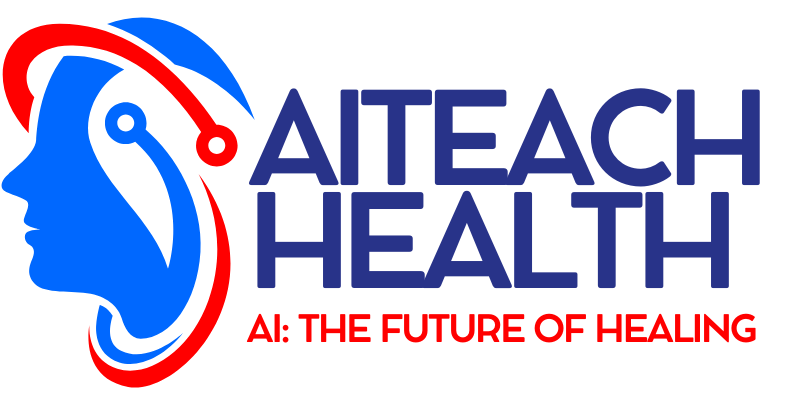Introduction: AI’s Capabilities and Limitations in Healthcare
The application of artificial intelligence (AI) is already revolutionizing healthcare, providing the capability to diagnose diseases, personalize treatment and facilitate workflows. From predictive analytics to robotic surgeries, great potential exists for AI to save lives. However, ethical issues in AI healthcare have become a point of concern as we adopt this technology. How do we balance our passion for innovation with integrity? Bias in algorithms, patient privacy and accountability are among the issues we need to be addressing. This article delves into these considerations, identifies the associated implications, and provides guidance on the responsible use of AI in health care.
The Power of AI in Healthcare: A Double-Edged Sword
The role of artificial intelligence in healthcare is experiencing explosive growth. Machine learning algorithms evaluate medical images, chatbots offer psychological counseling and algorithms predict patient outcomes. And an AI-based diagnosis led to a 20% increase in the rates that certain cancers were detected, according to a 2023 study. But those advances bring ethical risks. – A cursory look into some central discussion points and debate around ethical considerations in AI-based healthcare – It’s really are we experiencing a reality akin to From Hell?
AI Algorithmic Bias: A Threat to Fairness
AI systems are trained on data, but what happens when that data is faulty? bias in healthcare ai could result in disparate treatment, misdiagnosis, or ignored conditions for marginalized groups.
Real-World Example: In 2019, a report on a popular algorithm used in A.I. found that it under-predicted risk for blacks, resulting in these patients being sicker before they received care. This is because the biased training on historical inequalities.
Impact: AI with bias could also propagate inequalities, eroding trust in health care systems.
Solution: Developers need to “ensure that we take in diverse datasets and regularly audit for bias.
Patient Privacy and Data Security
AI depends on large quantities of patient data — medical histories, genetic profiles and details about lifestyles. While this promotes innovation, it also provokes serious privacy questions.
Risks: Data breaches or misuse could lead to exposure of sensitive information. In 2024, a major network of hospitals was sued after the screwup of an A.I. vendor turned over protected health information on patients.
Regulations: Laws like HIPAA and GDPR spells out guidelines, but enforcement is different among countries.
Best Practices: Security Saving and stowing away data can protect patient information.
Accountability: Whose Job Is It to Explain AI?
When an A.I. system recommends medical care, who is responsible if it is faulty? Who is the maker: the developer, the healthcare provide or the AI?
Case Study: In 2022, an AI diagnostic tool incorrectly categorized the condition of a patient, leading to a delay in treatment. It was the hospital, not the A.I. developer, that got dragged into court.
Challenge: Who is liable for decisions made by AI is currently vague, making trust, adoption and assumptions about working with AI hard to make.
Solution: Open regulations and shared responsibilities can provide a framework for responsibility clarity.
Transparency and Explainability: Building Trust
AI systems, it turns out, routinely act as “black boxes,” whose reasoning even their programmers have trouble understanding. This lack of openness has ethical implications.
Why It Matters: Patients and physicians must understand how A.I. arrives at its conclusions, particularly with life-altering diagnoses.
Example: A 2023 survey revealed that 65% of patients were not comfortable relying on AI diagnostics without clear explanations.
Solution: Explaining AI models and mandating providers reveal if AI was used can help to build trust.
The Risk of Too Much Dependence on A.I.
A.I. can supplement human expertise but over-reliance runs the risk of dehumanizing care. Doctors might defer to algorithms, marginalizing clinical judgment or patient participation.
Worry: Too much reliance on AI might diminish empathy in patient interactions, a key principle of medicine.
Balance: We need AI augmenting human decision-making rather than replacing it.
Example: In a 2024 pilot, hospitals that employed AI-assisted diagnostics performed better when doctors critically considered AI suggestions.
How To Tackle Ethical Dilemmas In AI-Driven Healthcare
To responsibly channel the potential of AI, stakeholders need to begin taking active steps. Here are actionable steps:
- Diversify training data: Ensure that the training data are representative in order to avoid a bias.
- Regulate: Governments, organizations, and policy makers should instate legal regulations to promote ethical AI.
- Educate Providers: Educate healthcare providers on AI’s constraints and ethical ramifications.
- Ensure Involvement of Patients: Engage patients in the conversation of AI use in their care.
- Invest in Explainable AI: Focus on models that produce transparent and interpretable results.
Conclusion: Progressions Toward Ethical AI in Healthcare
It is clear that AI has the potential to revolutionize healthcare, but ethical issues in AI healthcare should be looked upon with care. From tackling bias and privacy concerns to promoting accountability and transparency, the way forward necessitates cooperation among creators, users, and overseers. We can strive for a future where AI helps us achieve care that is better and leaves our integrity intact, but only if we put ethics first. What’s your take on AI’s place in health care? Let us know your thoughts in the comments, or take a look at our other healthcare innovation content!
FAQs
What are the most important ethical issues in AI in healthcare?
Key questions are the bias in algorithms, patient privacy, accountability, transparency, and relying too much on AI systems.
Is there any way to minimise bias against the AI in healthcare?
The book is clear that bias can be reduced by using a variety of datasets, by auditing the process on a regular basis and involving multidisciplinary teams when developing AI.
Why is transparency in AI healthcare tools important?
Transparency is what allows patients and providers to know why AI decisions were made; transparency facilitates trust and supports informed decisions.
How can patients safeguard their data in AI-powered health?
Patients should check on data policies, insist that providers adhere to laws like HIPAA and advocate for anonymized use of data.



